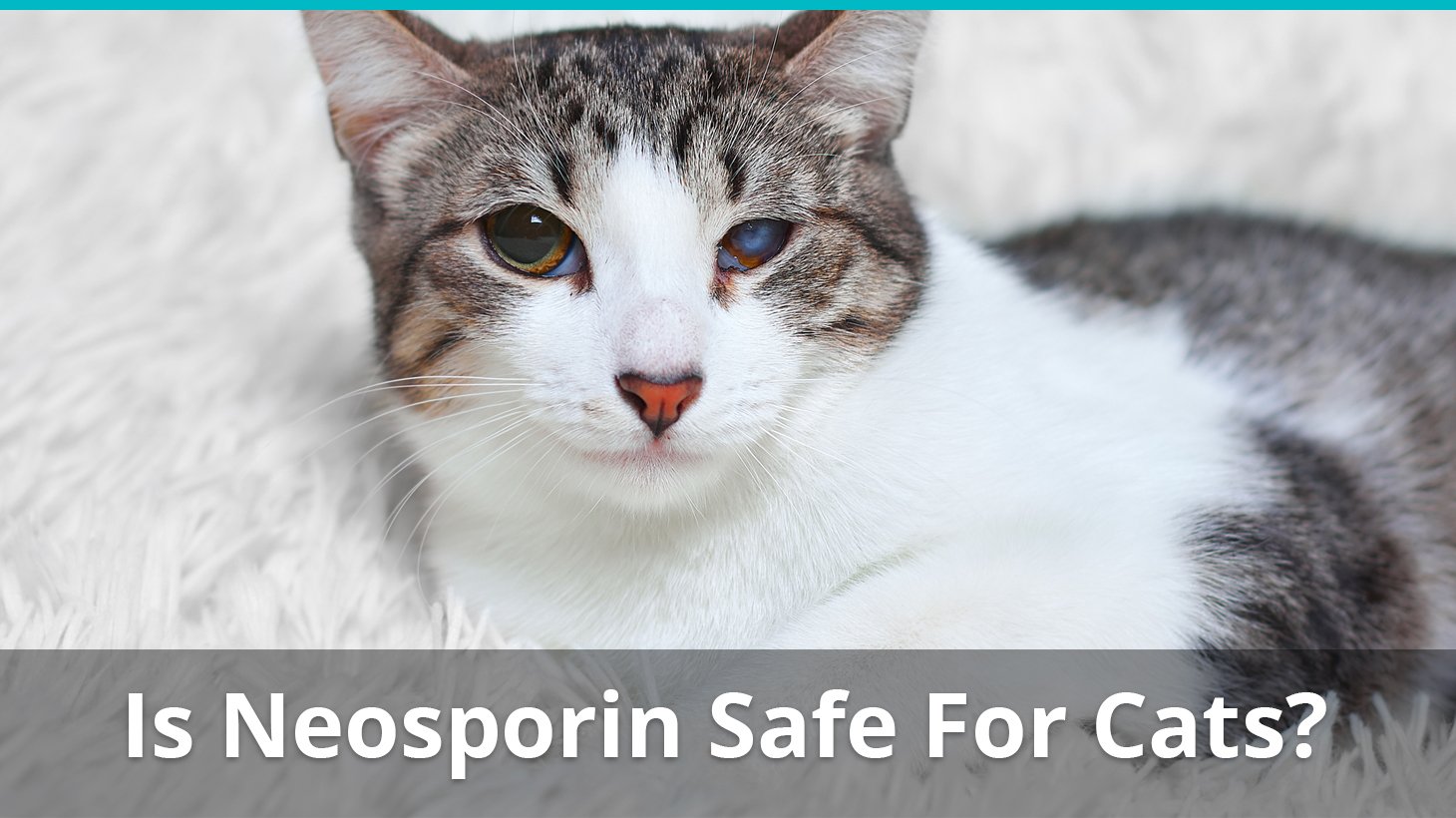The feline organism heals differently than ours. That, however, doesn’t mean that cats don’t bleed and hurt just like we humans, do.
It comes only natural for many pet parents to ask themselves if the pain reliefs and medications they use might be safe for their cats too.
Whether the kitty has a problem with digestive system disorders, a superficial wound, or just needs a relaxant to help it fight off anxiety and go to sleep, there’s nothing wrong with wondering if medications manufactured for humans can also be administered to cats.
In some cases it is safe.
Codeine, lysine, dexamethasone, and other similar drugs are even prescribed by vets. And in other, more severe cases, veterinarians even prescribe antibiotic medications similar to the ones humans use.
One particularly popular antibiotic ointment manufactured for human consumers is Neosporin. Its numerous applications include the prevention of infections from cuts, wounds, burns, and so forth.
As we all know, cats tend to bite, scratch, fight, and attack everything – from inanimate objects to other animals and even their own pet parents.
So, is it safe to treat the typical cuts and wounds on our feline furballs with Neosporin? After all, it’s popular, effective, and easy to get over the counter.
Can You Use Neosporin On Cats?
Yes, you can use the Neosporin on superficial cuts or scratches, BUT you might not want to, so read on below.
However, you shouldn’t use it on something that’s already infected, such as irritated feline acne or abscess or other skin conditions. Neosporin is simply not meant to serve as a cure for deeper cuts, scratches, rashes, bites, and similar problems.
When it comes to humans, Neosporin can help prevent further infections and can speed up the wound’s healing process. It does the same thing with cats, dogs, and other types of domestic pets.
There are no known side effects in humans or cats. However, as with any topical solution, it could cause an allergic reaction and skin irritation.
BUT…Here’s Why You Shouldn’t Use Neosporin On Cats
As mentioned above, the antibiotic ointment is safe for feline furballs. But apart from the possibility of an allergic reaction, there are several other reasons why you actually shouldn’t use Neosporin on cats, regardless of their breed, age, or how superficial their wound may seem.
Neosporin has three basic active ingredients – neomycin, polymyxin B, and bacitracin. Polymyxin B can cause anaphylactic shock (similar to what people who are allergic to peanuts experience if they accidentally eat one) and even death in felines.
Neosporin may do wonders on people for some mild skin problems. But when it comes to felines, there are many far more suitable medications specifically manufactured for cats.
All cats lick themselves as a way of self-grooming, and any Neosporin in their mouths or eyes could be a bad thing. Even opting for a collar or cone to prevent the cat from licking the wound can’t guarantee that it won’t still accidentally get some Neosporin on its lips.
Besides those basic dangers, some Neosporin medications also have additional ingredients for relieving pain. And those additional ingredients could even further harm your pet.
You should be extremely careful when it comes to your cat’s skin and coat care. You should only treat your cat with medications and ointments prescribed by your vet.
Alternatives To Neosporin For Cats
There is no universal alternative to Neosporin for all cats. In long-haired breeds like Persians, it can be hard to tell how deep a wound is, and even if your cat is short-haired, assessing how bad an injury is can be difficult.
As such, don’t attempt to self-diagnose your pet because you can easily misjudge the severity of the wound. And don’t give it any type of medication manufactured for humans, even if its ingredients seem pet-safe. Worst-case scenario – you can accidentally trigger an allergic reaction, a secondary infection, or an even worse problem.
If your cat is suffering from skin irritation, infection, rash, or another similar problem, take it to the vet’s office for a check-up. Your veterinarian will inspect the wound and prescribe any medication your kitty may need.
Your pet’s health care should come as a priority.
Always consult with a vet before getting any type of drugs and ointments for your furball.
And never wait too long before taking your pet for a check-up. Even if the problem isn’t serious, there’s nothing wrong with being an overprotective pet parent. Better safe than sorry!

